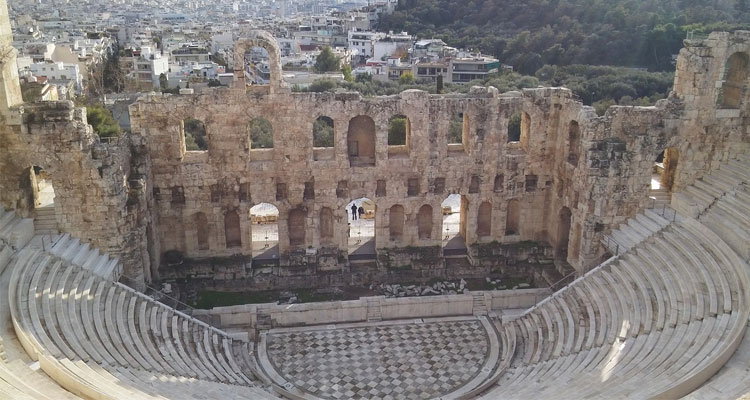Mythology is in Theatre’s DNA
There is music in the word mythología! It appears in Plato’s discourses, as a general term for fiction of any kind, combining m?thos (narrative/fiction] and -logía [discourse or speaking about]. Traditionally, mythology then empowered a story to be taken seriously and proliferated as a livewire in dialogues across generations.
For the ancient Greeks and even for many old civilizations which laid emphasis on oral traditions, including our own, the role of the myth was critical; they perceived a myth as a “true story”, akin to history, which spoke of past events and an established world order. Mythic histories laid claims to dynastic lineages and ethnic identities by giving the “back stories” of war and conquest, the founding of cities, and the anointing of kings.
Myths then, were at heart, narratives about human behaviour, the origins of the universe, natural phenomena, the relationship between culture and nature, and the physical and metaphysical. It blurred identity lines between Gods and humans and made abundant use of symbols, allegories and archetypes. Look at the stories within stories in the maze that comprises the Great Epics such as the Mahabharata or the Iliad: myth and legend and plots intermingle, jostle and feed into one another to create a tapestry which is alive with excitement, intrigue, war and tragedy.
The root of mythology and drama are the same: both emerged from ancient cultural practices, fertility rituals, and religious festivals which demanded a community to come together in an organised ceremony. They were, primarily, modes of understanding the mysteries of the universe and the evolution of our race for a group of people still coming to terms with the eternal cycles of birth and death, seasons and the passage of time. The earliest Greek drama evolved from religious festivals in praise of Dionysius, the presiding deity of revelry, dance and wine. In the beginning though, there was just the chorus, much like the sutradhar or the narrator in our plays and dramatisation occured when the protagonist separated from the chorus.
The role of the myth in drama is inextricable and definitive – it is on which rests the mighty theme of identity, central to story-telling, both ancient and modern-day. Through mythology’s many narratives, literature seeks that connection which links our emotions to a greater understanding of self.
At this year’s META, mythology has pride of place. The Manipuri play Hojang Taret takes off from the 5th century BC Greek tragedy The Phoenician Women by Euripides about the overwhelming ethical ambiguities of the fraternal conflict that led to the destruction of the city of Thebes. The Phoenician women are in fact the “chorus” – who narrate the horrifying myth of Oedipus, his inadvertent marriage to his mother Jocasta (which fulfilled an ancient prophecy) and the ensuing war of destruction between their two sons Eteocles and Polynices. Mythology feeds into the play – to bring into sharp focus the intense tragedy of human emotions which play out even today across societies bringing about violence, annihilation and loss.
In the non-verbal dance drama Karuppu, age-old Dravidian cultural beliefs depict a universe that absorbs imbalances like a black hole from which rebirth of everything new is possible. Karuppu’s theatrical experience takes us through the separation of the male from the female, leading symbolically to destruction: destruction, in turn leads to renewal. “Karuppu” is the dark energy which breaks down in order to reunite. In destruction lies creation – a universal truth which is undeniable even today and has been demonstrated through history in the ancient ritualistic practices of civilisations which worshipped the forces of nature and revered the fire god.
In the innovative and fascinating play Shikhandi, we see the re-emergence of one of mythology’s first trans-genders – Shikhandi – a character from the Mahabharata – who seamlessly hops, skips and jumps across being male and female – and we end up with questions which not only examine stereotypes of identity but mix beliefs and myths – ancient and modern .
Mythology thus brings emotions to a boil – it brings us face-to-face with ideas which were there at the origin of creation, and at the centre of human history. Most of us feel a prickling of familiarity when confronted with the vast range of emotions mythology explores. And drama mirrors “myths” and feelings buried deep within us through centuries.
– Arundhati Nath




Leave a reply